The question was asked first on LinkedIn where other answers can be found. My answer was:
“Dear Martin,
You have posed a most important question in today's world.
In the space provided there is little I can respond that will do your question justice, but perhaps I can offer some starting points for further consideration.
Please allow me to recommend first a book entitled How to Think About God: A Guide for the 20th-Century Pagan by Mortimer J. Adler. Adler provides a philosophical analysis of the concept of God, in western culture at the least.
In a second book, Truth in Religion, Adler provides the results of his comparative studies of various predominant religions around the world.
Thus with the guidance of these two books you may sort out a consistent philosophical perspective and a sense of truth as a criteria for judgment.
However, may I suggest that you would do well to look outside of studies of God alone to see some of the sources of the problems you observe.
Modern approaches to Power and Knowledge have placed these two at the level of idols, if not gods, for many modern people. Here I would recommend two books by Peter Kreeft. In Socrates Meets Machiavelli: The Father of Philosophy Cross-Examines the Author of The Prince, Kreeft presents a lively dialogue with the thought leader of many of the players in our world of power politics. With astounding results, I would add. In Socrates Meets Descartes: The Father of Philosophy Analyzes the Father of Modern Philosophy's Discourse on Method, Kreeft takes on Knowledge, again with very revealing results.
Contrast these modern philosophies with those found in the Old Testament and you'll see an amazing difference of opinion. In Three Philosophies of Life: Ecclesiastes, Life As Vanity Job, Life As Suffering Song of Songs, Life As Love, Kreeft reminds us of some of the ancient sources of wisdom as opposed to modern claims of knowledge and power that we may want to consider before we tear each other apart.
Then in Ecumenical Jihad: Ecumenism and the Culture War, Kreeft argues that the real culture war is not so much between people of faith but between people of faith and secular humanists.
Another view is the psychological foundations for all of this. Here I would recommend The Strange Trial of Mr. Hyde: A New Look at the Nature of Human Evil by John Sanford. Using the well known Jekyll/Hyde story, Sanford presents some plausible arguments that the monster involved in evil is not Mr. Hyde, but the doctor who generated him in the lab. Very interesting arguments about the sources of evil. God may allow evil to happen, but he is not the source. We are.
And if we are the source of the evil you complain of, why is that? You may find the following book telling in this regard: Kierkegaard's Philosophy: Self Deception and Cowardice in the Present Age by John Mullen. In an era of self-centeredness, deception may be the knowledge or power-oriented modus operandi, but self-deception and cowardice are the likely causes. Fear of truth is the deepest fear.
Finally, I would recommend reading Pensees (Penguin Classics) by Blaise Pascal and Common Sense 101: Lessons from G.K. Chesterton by Dale Ahlquist.
Pascal, most famous for Pascal's Wager about taking a gamble that God exists. His thoughts about your God and mine come from a very unexpected angle.
Chesterton's commonsensical approach brings us all back to earth about such matters. The common sense answer is that most of us already do live with others who don't share our views of God.
The reason for this I believe is quite commonsensical and stated most succinctly by Thomas Aquinas:
"It is better to know a stone than to love a stone, but better to love God than to know God, because love conforms the lover to the beloved, while knowledge conforms the known object to the way-of-knowing of the knower."
We can live with each other best when we try to be more God-like about it: by loving each other for who we are not what we are.”
What do you think?
Please include your comment here or contact me to discuss.
Thanks.
John Darrouzet
for people who want to make better decisions
The Decision-Maker's Path (tm)...
Quick Overview
Blog Archive
-
▼
2008
(132)
-
▼
March
(81)
-
▼
Mar 06
(18)
- When you contend with others about judgments based...
- Asking Questions
- Rash Decisions? Is there such a thing?
- Anecdotal evidence: worthwhile or worthless, when ...
- The Reality: What you know? Who you know? Who they...
- What is more important Money or Power?
- Knowledge is power. Information is gold. Giving aw...
- Controversy: Unpredictability vs. Consistency (Yin...
- Greatest invention/theory of all time and why?
- What advice would you have for a new president of ...
- How do I find a truly satisfying role for the long...
- You Only Get One Choice On This, Just One Please!
- Are you happy?
- Advice for someone embarking on a new career adven...
- What is your definition of creativity?
- If you really believe in YOUR god how can you live...
- Where do ideas come from?
- If you had 15 to 20 minutes of radio time to speak...
-
▼
Mar 06
(18)
-
▼
March
(81)
Discovering the centers ...

... of embedded insights
MOVIES FOR DECISION-MAKERS
Below are the cover images of movies for decision-makers, with clues to better decision-making.
Romero: the significant decision
"I know men and I tell you that Jesus Christ is no mere man. Between Him and every other person in the world there is no possible term of comparison. Alexander, Caesar, Charlemagne, and I have founded empires. But on what did we rest the creation of our genius? Upon force. Jesus Christ founded His empire upon love; and at this hour millions of men would die for Him."
--Napoleon
Decision-making: like climbing ...

a spiral staircase...one step at a time.
John Darrouzet
Special Counsel for Decision-Makers
Links
Followers
Subscribe To
********************* Advertising Disclaimer *********************
NOTE WELL:
Allowing the placement of the ads set out below should not be interpreted to constitute an endorsement or recommendation in any way by Special Counsel for Decision-Making or John Darrouzet of the content or programs referred to therein by the advertisers.
*****************************************************************************************************************************************
Allowing the placement of the ads set out below should not be interpreted to constitute an endorsement or recommendation in any way by Special Counsel for Decision-Making or John Darrouzet of the content or programs referred to therein by the advertisers.
*****************************************************************************************************************************************
*************************** Legal Notice **************************
Decision-Maker's Path (tm) trademark by, and blog content copyright © 2008, John Darrouzet. All rights reserved.
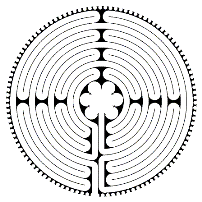













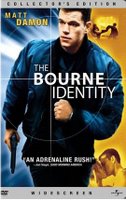




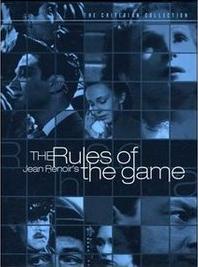















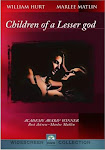






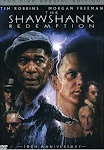






No comments:
Post a Comment